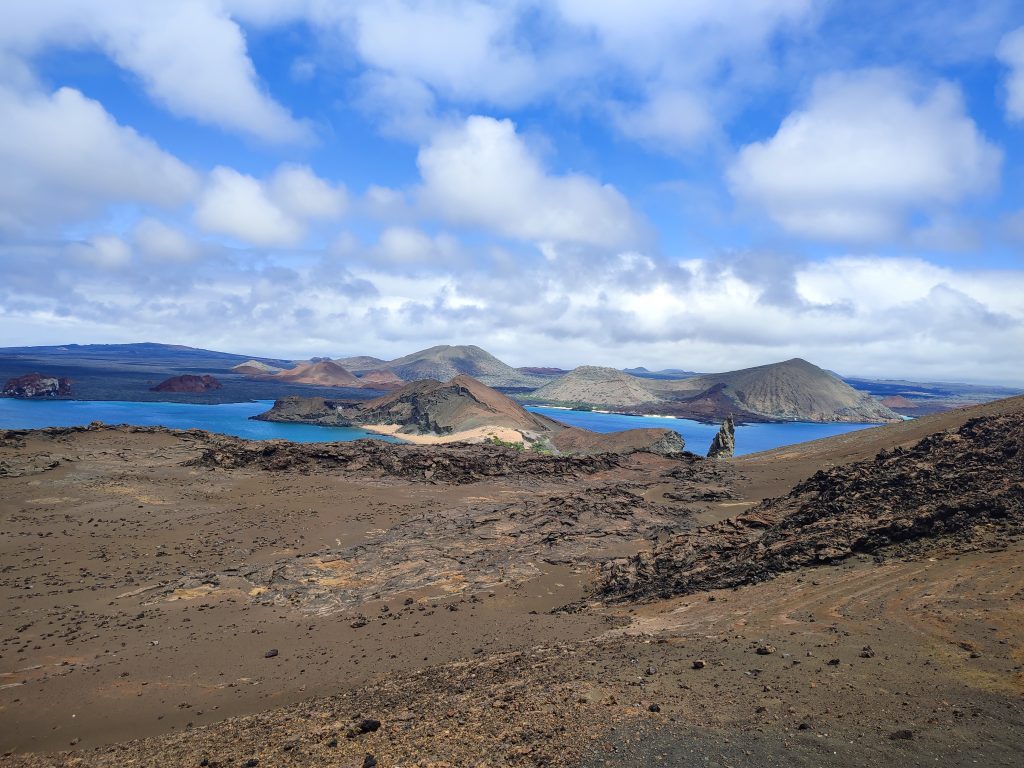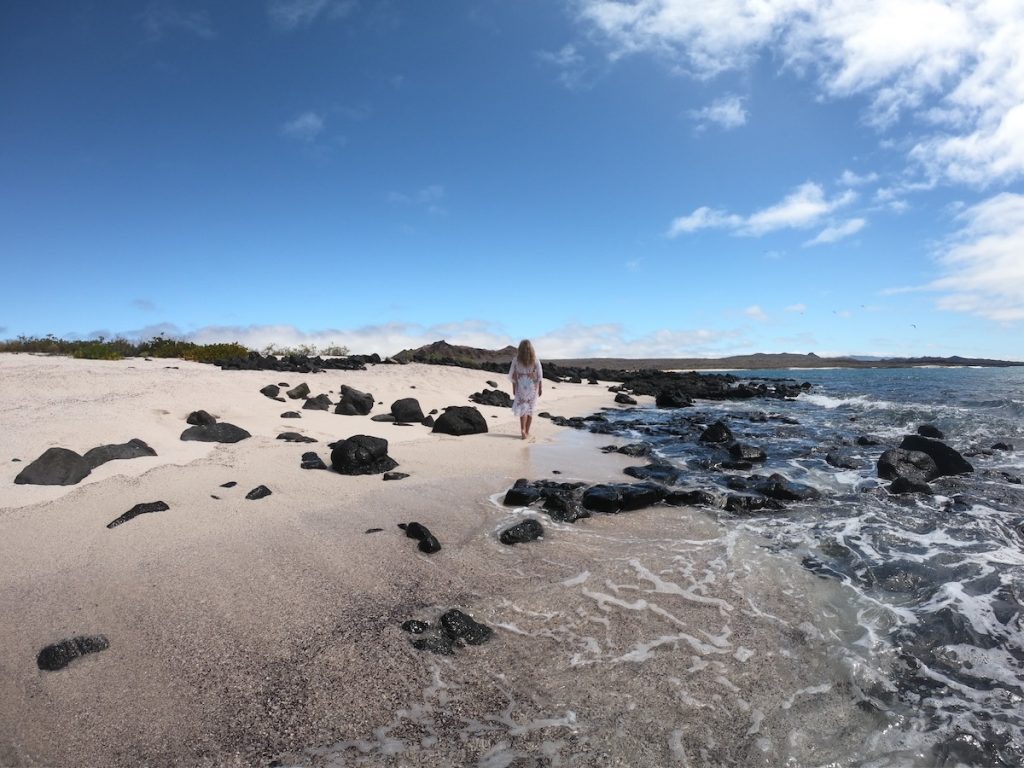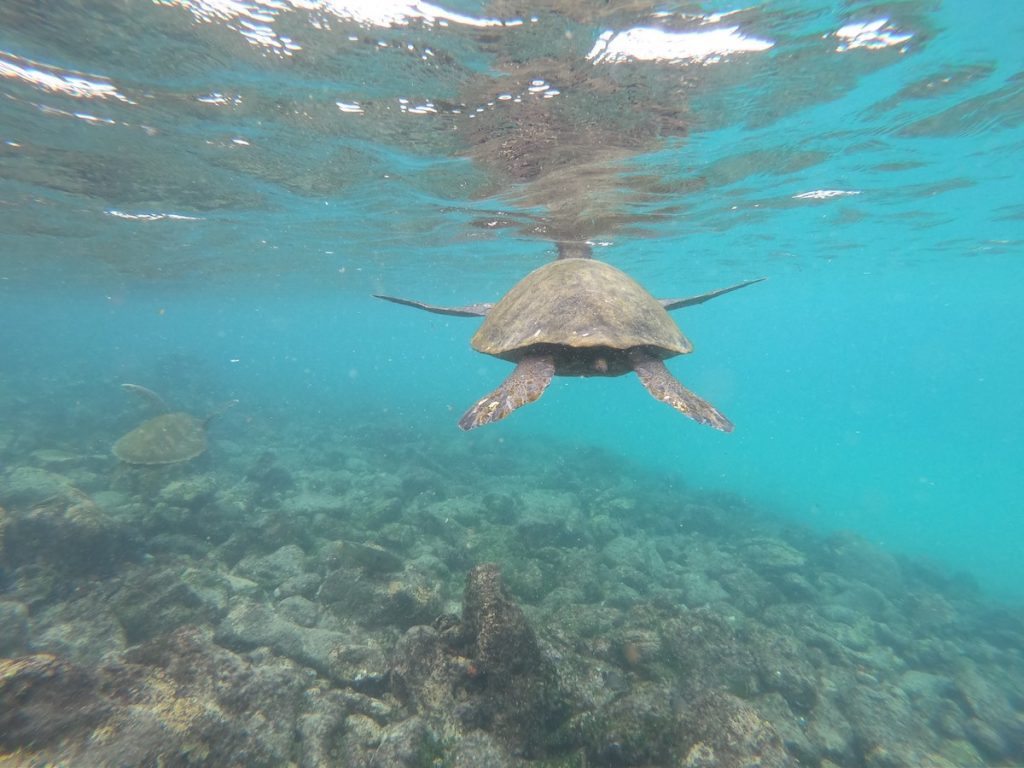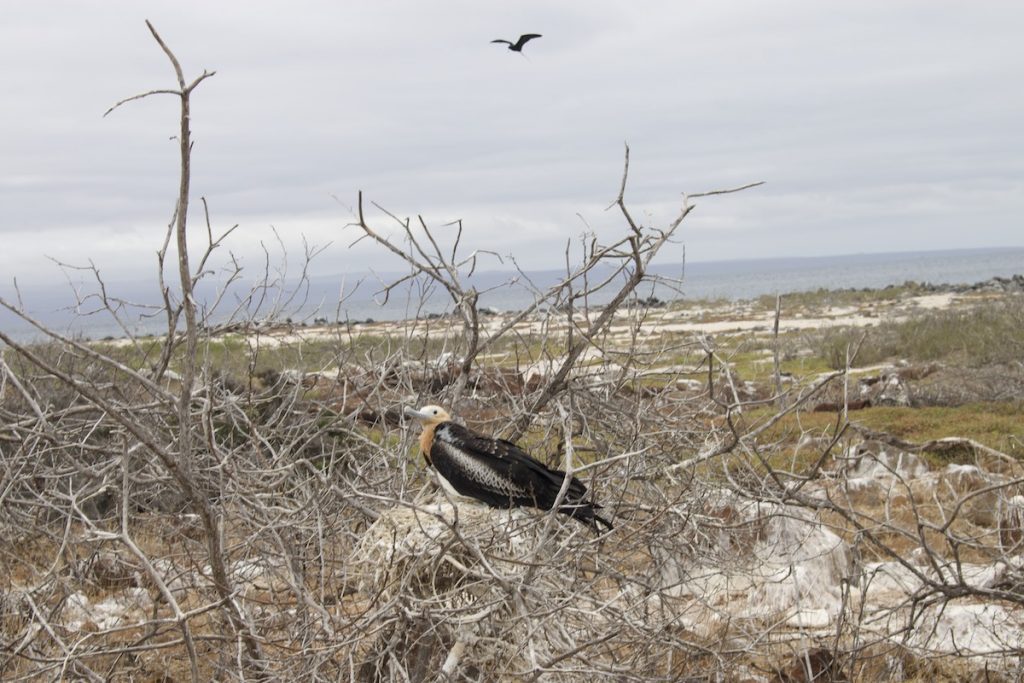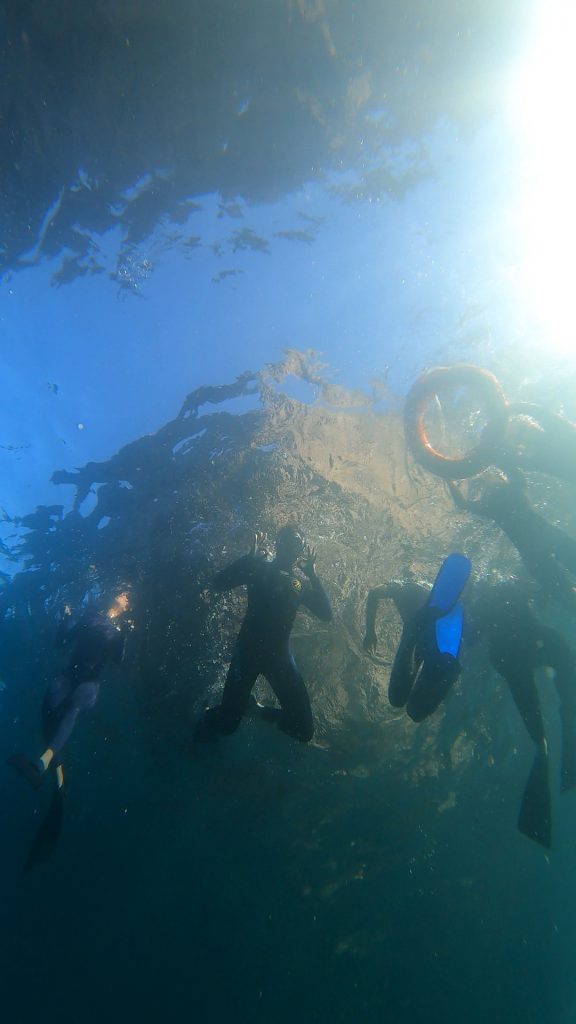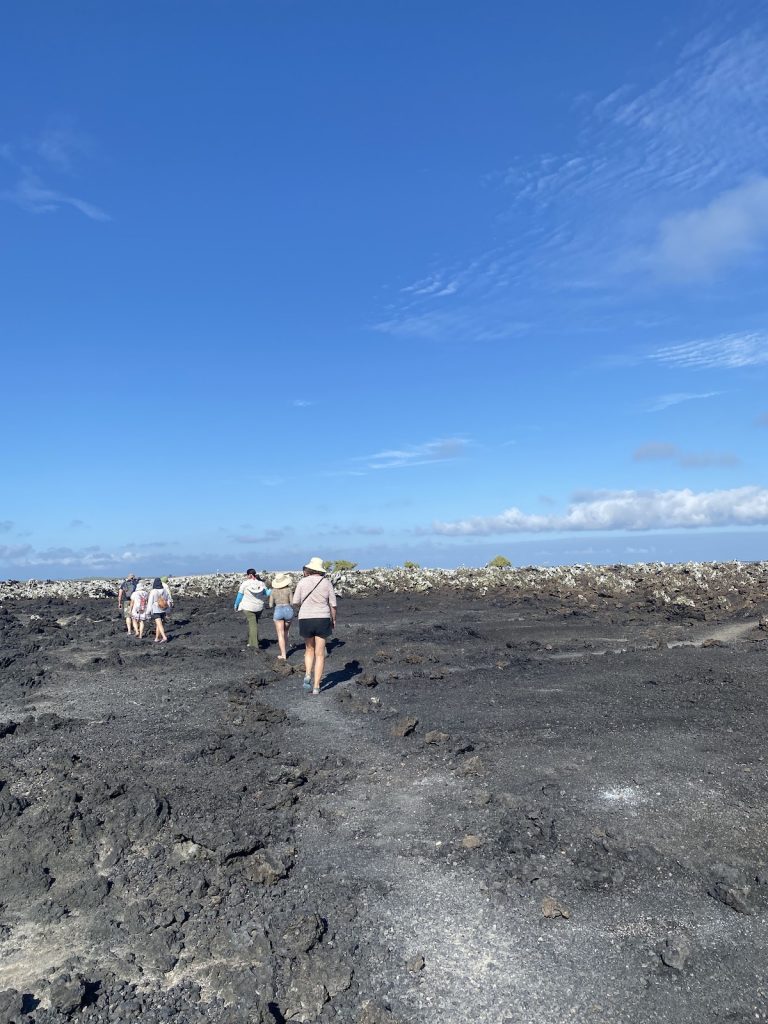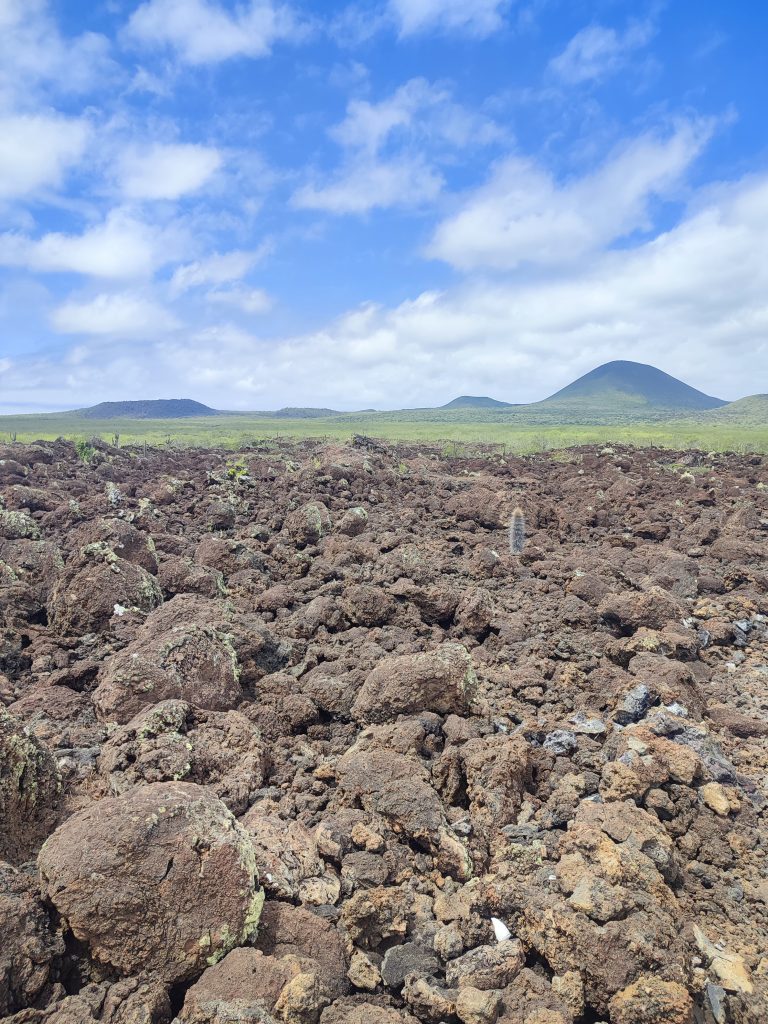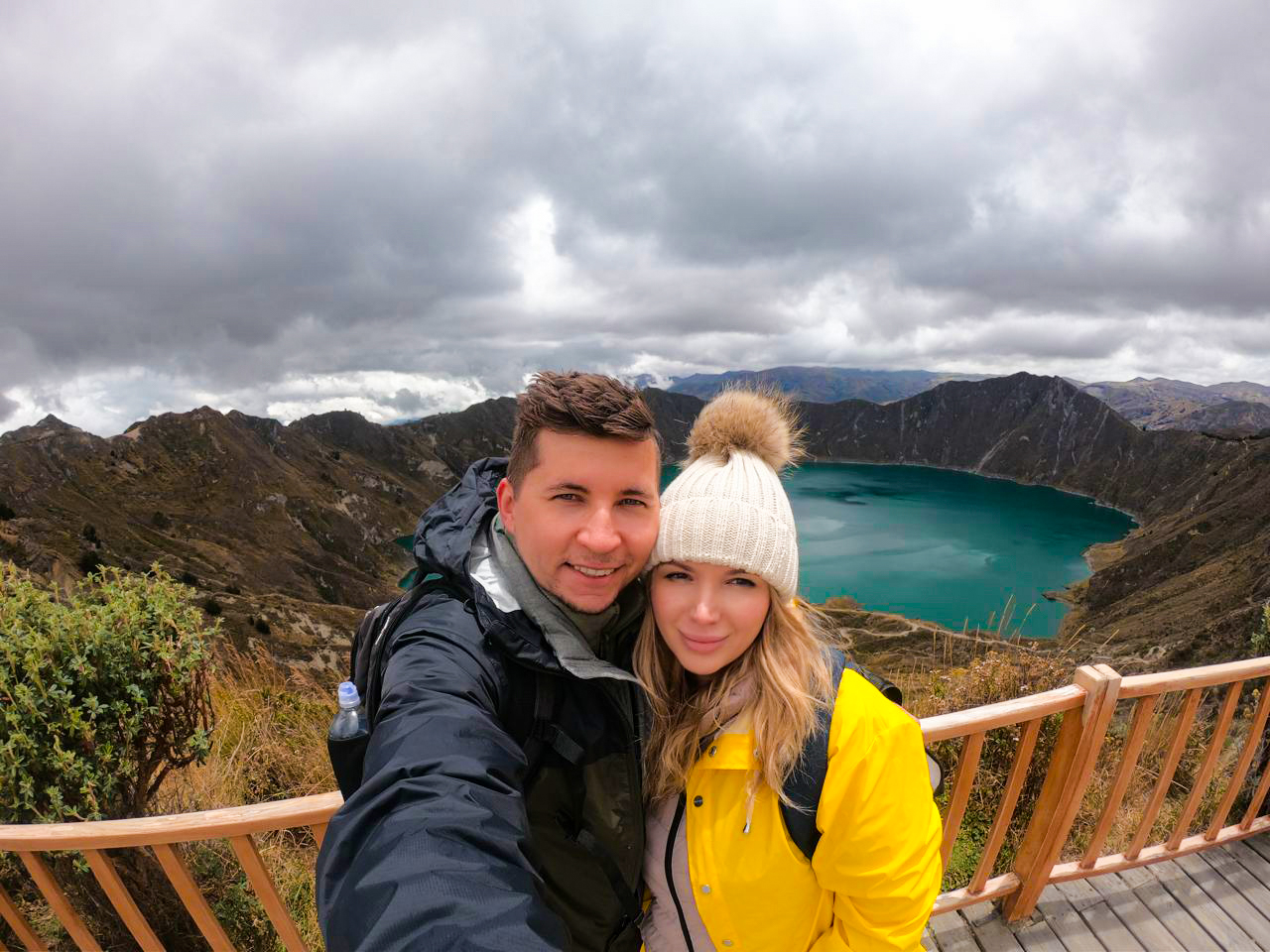Being on the equator, the climate in the Galapagos Islands does not change significantly throughout the year. The Islands’ climate is most appropriately categorized as subtropical. However, there is some variance, primarily caused by ocean currents.
The Galapagos Islands have two different seasons: warm and wet and cool and dry. The distinction between seasons is slight, yet it has an impact on life in the Galapagos.
You can view all of the magnificent fauna and stunning volcanic panoramas in both Galapagos weather seasons. However, it is beneficial to grasp the distinctions while planning your vacation. The Galapagos Islands are a once-in-a-lifetime opportunity, so make the most of it!
When planning our Galapagos trip, choosing the right season made a huge difference for the activities we wanted to do. Get a FREE custom itinerary from local experts who know exactly when to visit for your preferred wildlife encounters and activities. Your support helps this blog and local Galapagos communities!
Plan perfect trip to Ecuador & Galapagos
I spent countless hours researching everything about traveling to Ecuador, and I created this blog for fellow travel enthusiasts who want the best, most reliable information. But if you want to save time, we’ve partnered with the top local agency to plan your dream trip.
Warm and Wet Season
The warm season is described as the months of December to May. This time of year delivers a distinct combination of warmth, rain, and sun. The El Niño current drives this season. It brings a warm current that heats both the water and the land. This season is also known for afternoon showers.
Average temperatures for the warm and wet seasons:
- Temperature range: 26°C (80ºF) to 32°C (90ºF )
- Water temperature range: 21°C (70ºF) to 26°C (80ºF)
The Galapagos’ climate is more tropical during this warmer season, with daily rain and a cloudier sky. Furthermore, the water temperature is warmer for swimming and snorkeling.
During this season, guests can see marine iguanas, sea turtles, land iguanas, flamingos, white-cheeked pintails, masked boobies, marine iguanas, albatross, and blue-footed boobies on the islands. Snorkeling is highly suggested during these months because the water is warmer.
Cool and Dry Season
The cool season is best characterized as lasting from June through November. The weather during this season also creates a special blend; it is typically gloomy, chilly, and dry. This is caused by the Humboldt Current, which transports a cooler current to the Islands and cools the ocean as well as the land.
The cool season’s typical temperatures are as follows:
- Temperature 21°C (70ºF) to 26°C (80ºF)
- Water temperature 18°C (65ºF) to 23°C (75ºF)
In consequence, the larger islands’ hills remain green and lush, whereas the sea-level territories and shorelines receive little precipitation. Thus, the “dry season” from June to December is recognized for its blue sky and mid-day rains.
The frigid Humboldt current transports nutrients from Antarctica to the Galapagos Islands. Galapagos Sealions, Marine Iguanas, Sharks, and seabirds such as the blue-footed booby and Waved Albatross thrive in these conditions. Migratory whales are also drawn to the Galapagos Islands for feeding.
Looking back, I’m glad we matched our diving and snorkeling plans with the best water temperatures. Don’t leave it to chance – get a FREE personalized itinerary from local experts who can help you plan around Galapagos seasons and currents. Your quote request supports this blog and local Ecuadorian businesses!
Weather in Galapagos for Divers
The impact of the Humboldt Current brings freezing water, especially during the foggy, rainy season (cool temperatures) from July to December. The “El Niño” current may bring warm seas to the Galapagos, warming the surface and increasing rainfall (January to June).
The temperature of the water varies throughout the year.
- From December until June:
between 21°C (70ºF) and 26°C (80ºF)
- From July to November:
between 18°C (65ºF) and 23°C (75ºF)
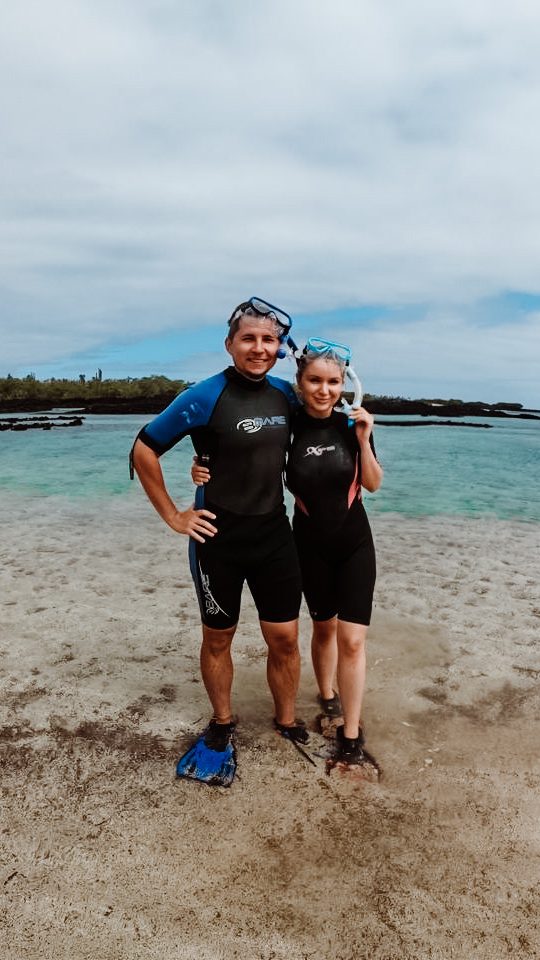
Planning trip to Galapagos Islands?
My wife and I spent two weeks on these magnificent islands, visited nearly every possible tour, and explored as much as we could. I shared all the important details in my comprehensive Galapagos Islands Travel Guide, where I cover everything you need to know about planning a trip to the Galapagos.
Galapagos Islands travel might surprise you with extra fees to enter the islands, the complicated logistics between islands, booking tours, and knowing which spots are free to explore and which ones are not. I’ve covered it all in this Galapagos Travel Guide.
Also, if you’re planning a trip to the Galapagos, make sure to use my link for discounted hotel prices via Booking.com. It really helps support my blog!
Bottom Line
The weather in the Galapagos Islands is wonderful all year. For more details about the weather in Galapagos in each month, you may check our separate articles:
- Visiting Galapagos Islands in January
- Visiting Galapagos Islands in February
- Visiting Galapagos Islands in March
- Visiting Galapagos Islands in April
- Visiting Galapagos Islands in May
- Visiting Galapagos Islands in June
- Visiting Galapagos Islands in July
- Visiting Galapagos Islands in August
- Visiting Galapagos Islands in September
- Visiting Galapagos Islands in October
- Visiting Galapagos Islands in November
- Visiting Galapagos Islands in December
The wildlife activity also never fails to impress whatever season it is. So, what are you holding out for? Visit the Galapagos Islands and have an experience worth remembering.
Have questions about your upcoming Galapagos trip? Join my Galapagos Reddit community and ask other travelers who recently visited the islands. Get up-to-date tips, real experiences, and honest advice from other travelers (I ban tour agencies and resellers).
Plan perfect trip to Ecuador & Galapagos
I spent countless hours researching everything about traveling to Ecuador, and I created this blog for fellow travel enthusiasts who want the best, most reliable information. But if you want to save time, we’ve partnered with the top local agency to plan your dream trip.

